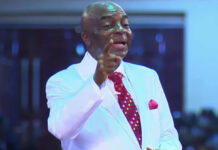The amendments to the 6th edition of the NBC code has stirred various emotions among stakeholders. From anger to sadness and sometimes disbelief, a majority of stakeholders have criticized the new code.
On the surface, the intention of the code cannot be faulted. As stated, it is to refocus the broadcast industry and make it more competitive. However, there are major areas that portray the commission as overzealous and overreaching, stepping out of its main focus into regulating or controlling other sectors. One of such sectors is advertising.
The Advertising industry has a regulatory body, the Advertising Practitioners Council of Nigeria (APCON). This body is saddled with the responsibility of regulating the practice of advertising in all its aspects and ramifications. The body also encourages responsible practice and the acceptance of advertising self-regulation. APCON itself has its code, with provisions that deal with the challenges that the NBC code attempts rather arrogantly to take on.
Section 7.8: of the NBC code deals with “Production of Advertising for Local Goods & Services”. This section is clearly outside the purview of the NBC, especially when it is considered that those who drafted it did so without any input from APCON. If the NBC had consulted with its sister regulator, it would have learnt that the APCON code deals with the matter in an even clearer manner.
In the Nigerian Code of Advertising Practice, Sales Promotion and other Rights/Restrictions on Practice (5th Edition), Article 127: Social Values, the APCON Code clearly states that Nigerian location and ambience shall be correctly depicted and respect for Nigeria’s national institution and culture shall be shown, with majority of the content of advertisement such as equipment, footage and production input shall as much as possible be Nigerian. It also states that Nigerian language shall be properly used in advertisements and requires that rich idiomatic expressions characteristic of Nigerian languages be positively exploited.
In Article 145: Promotion of Local Content and Nigerian Cultural Heritage, the code states that all sectoral advertising associations, advertising sponsors, advertisers of Nigerian export product and all manner of practitioners, contractors, advertising joint venture partners, foreign advertisers doing business in Nigeria and offering products and services directed at the Nigerian advertising market and generally all other persons or entities involved in any advertising industry shall consider Nigerian content as an important element of their overall business management, project development and/or execution.
It is the duty of APCON to regulate advertising as it concerns broadcasting and other media. In going beyond its role, the NBC exposes its misunderstanding of the modern rules of regulating an evolving broadcasting industry.
The broadcast industry is evolving rapidly in the digital space and the NBC, which should ordinarily be saddled with the responsibility of encouraging innovation and creativity, wants to control the industry rather than steer it towards growth and development. This is very evident in the struggle to attain complete Digital Switch Over (DSO) in the country.
While Section 7.8.2 of the code may seem very nationalistic, a deeper look at the global nature of the broadcast industry suggests that it may do more harm than good eventually. If Nigeria bans advertising produced in other countries from being broadcast in the country, there is also the possibility of the same being done to Nigerian adverts/content in other countries. How then does Nigeria compete globally? Strict regulations are not necessarily the way to get people to people to patronize home made products and productions. It is therefore important that we should not be beguiled by this section as it is just meant to appeal to the nationalistic emotions and then rob the advertising industry of investors and thereby slowly killing the industry.
It is pertinent to note that the NBC also does not have the right to scrutinize adverts before they are broadcast, as this responsibility belongs to APCON. Also, considering the vastness of the digital space, it will be almost impossible for the NBC to restrict consumption of foreign adverts, especially in the digital space.
Section 7.9.0, which addresses the unpaid advertising rates is well intended. But this should not be the job of the NBC. The Advertising industry under APCON should devise a regulatory mechanism that addresses issues such as this if one does not exist already. Attempt by the NBC to do this makes the commission seem like a debt collection agency.
The NBC needs to learn from the displeasure that many sectors have expressed over the new code that nothing beats consultation when making rules to regulate businesses. Wider consultation would have spared the commission the embarrassment it currently faces.

























